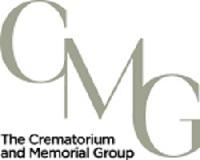Greasbrough Town Lane Cemetery
Address
Greasbrough CemeteryTown Lane
Rotherham
S61 4JQ
Map
Cemetery Opening Hours
1 April to 30 September
8am to 7pm Monday to Friday
9am to 7pm Saturdays
10am to 7pm Sundays and Bank Holidays
1 October to 31 March
9am to 5pm Monday to Saturday
10am to 5pm Sundays and Bank Holidays
General Information
This cemetery was opened on the 1 of April 1900 and contains two small cemetery chapels in the middle of the grounds which are no longer in use.
There are 6 commonwealth war graves within Town Lane Cemetery. To find out more information about these graves please visit the Commonwealth War Grave Commission via the following link Find War Dead | CWGC
Friends of Town Lane Cemetery
There is currently no organised friends of group for this cemetery. If you have an interest in this cemetery and would like to be involved in the formation of a friends group, please email bereavementservices@rotherham.gov.uk.
Dignity

Dignity Funerals Ltd have been contracted since August 2008 to manage Rotherham Borough Council’s cemeteries and crematorium.
If you would like to report an issue, request a service, or discuss matters relating to interments, cremations or memorials please contact the main office using the details below.
The office is open between 9am to 5pm Monday to Friday and run an appointment system for face-to-face enquiries. Please call the Dignity Rotherham Office on 01709 850344 to speak to a member of the team or to book an appointment.
Should you wish to make a complaint about the service you have received please either contact the Dignity office directly by telephone, email or alternatively via the Dignity head office client relations department whose information can be found below:
Complaints | Dignity Funerals Ltd
The ICCM, Institute of Cemetery and Crematorium Management, have awarded Dignity Rotherham a Gold standard under their Charter for the Bereaved for 2022/23.
Further information about Charter for bereaved
Emergency and Out of Hours Contact
For issues or situations relating to any of the cemeteries or the crematorium, please call the Dignity Rotherham Office phone number on 01709 850344. If no one is available in the officer, your call will automatically transfer to Dignity’s Central Contact Centre, you may experience a few minutes hold time. Dignity aim to answer all calls as soon as possible
Bereavement Services
The Council has retained the responsibility for the cemetery chapels located within Town Lane Cemetery.
Bereavement Services manages the performance of the Dignity contract.
If you would like to report any general site maintenance issues or request a specific service, please contact the Dignity office on 01709 850344.
If you would like more information on joining your local cemetery friends group, wish to contact the Council regarding the cemetery chapels or boundary walls, or have another concern or query that you wish to raise with the Council, please complete the enquiry form below and a member of the team will respond within 10 working days.
